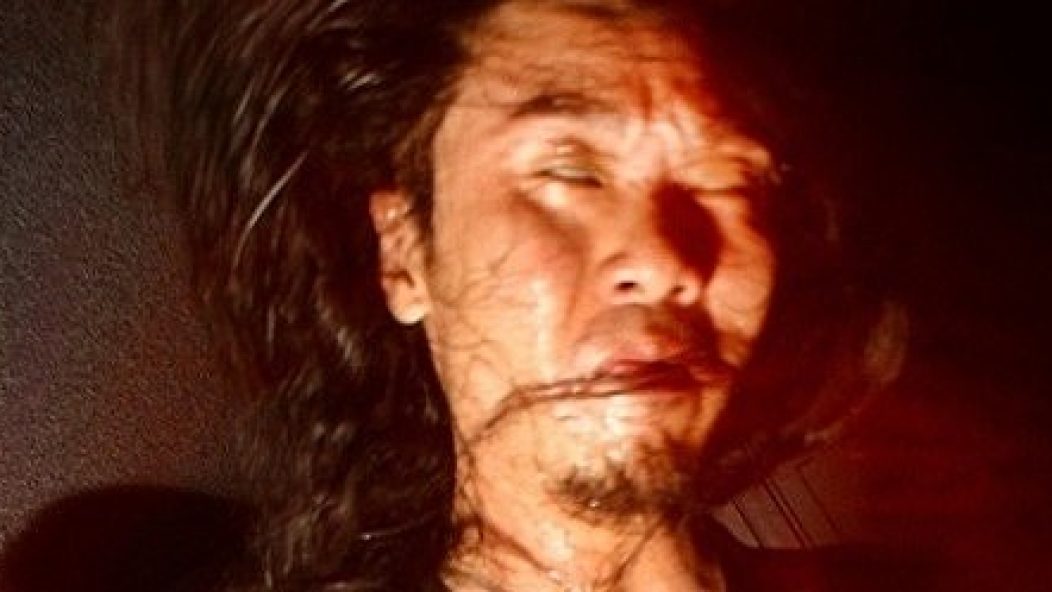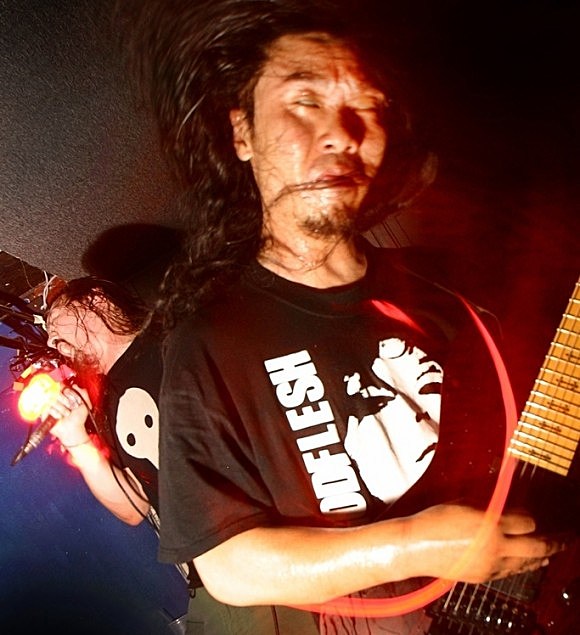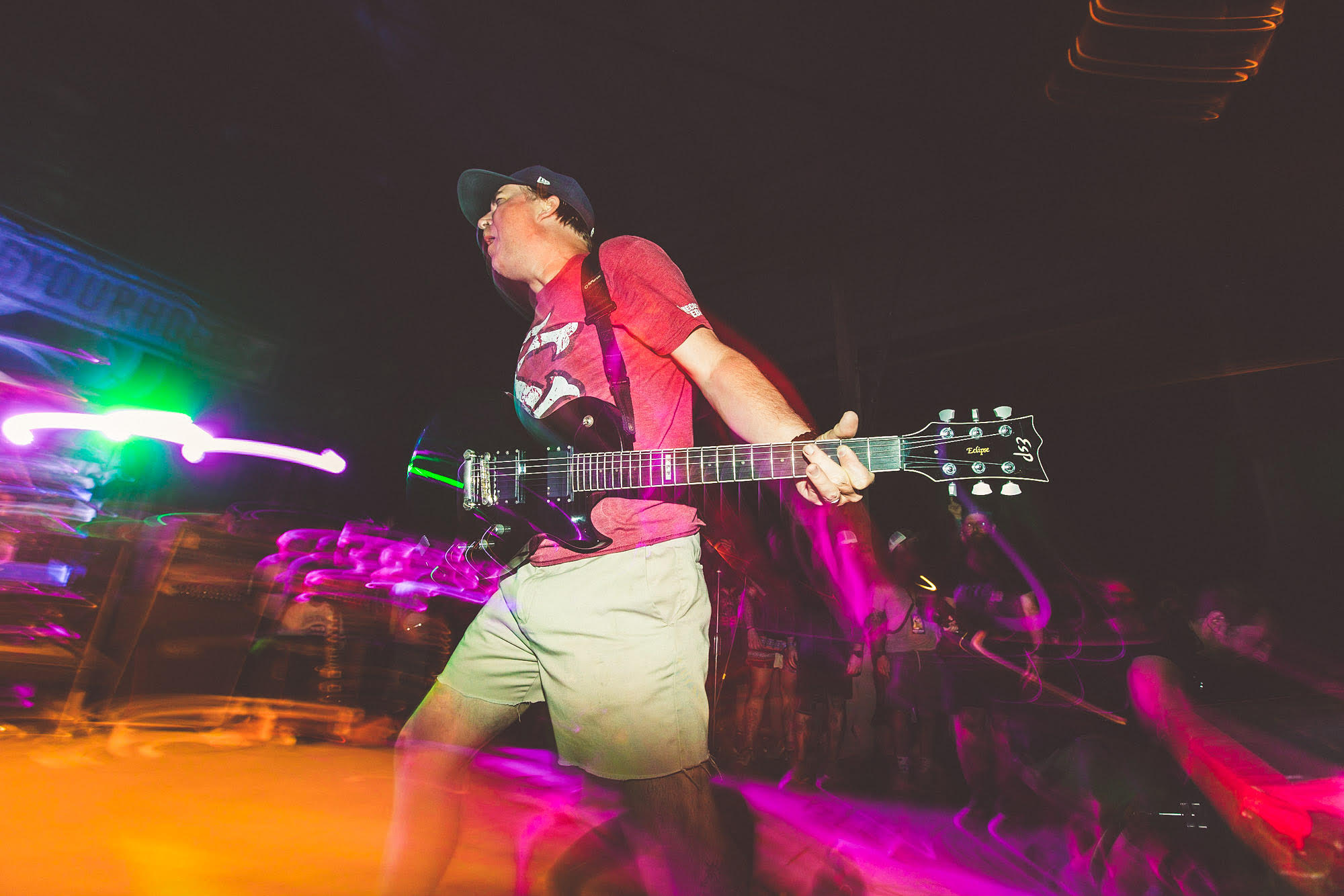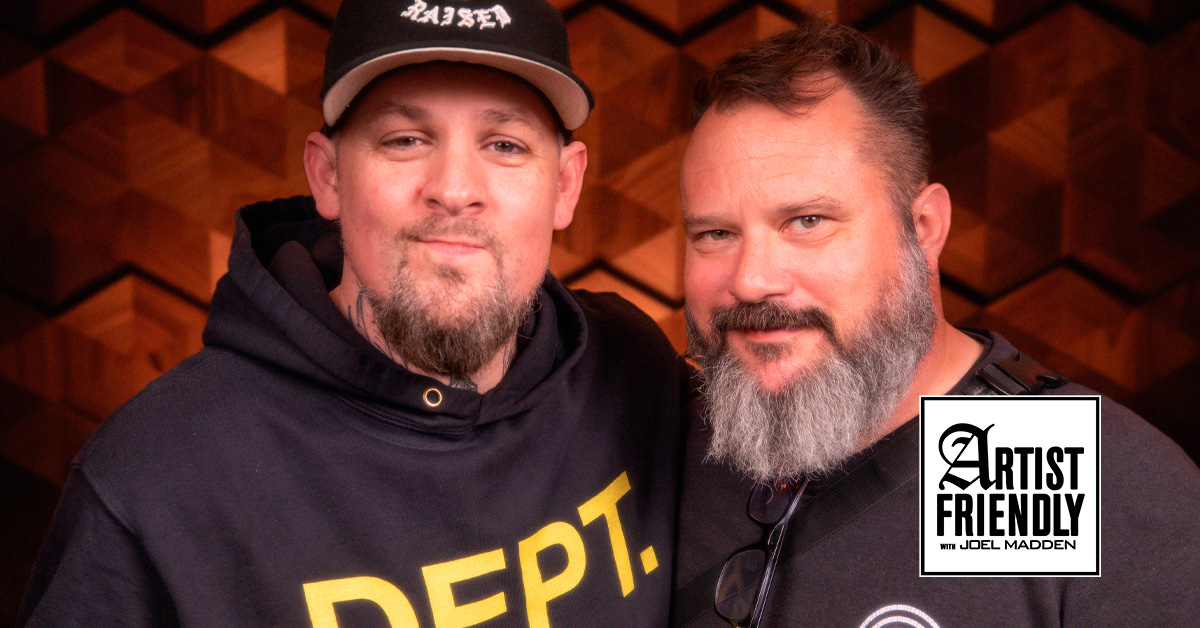
Shredding is a fragile gift

…
On Tuesday of this week, GridLink vocalist Jon Chang announced the following via Facebook:
It is with terrible sadness, that I must announce that Takafumi Matsubara is putting down his guitar and stepping away from music, likely forever. Approximately one month ago, Takafumi was hospitalized and doctors discovered he had a serious infection/inflammation in his brain. While the immediate danger has passed and Takafumi is out of the hospital, he has lost significant dexterity and control of his left hand, including the complete paralysis of his middle finger.
As of today, Takafumi has permanently stepped down as lead guitar from Corrupted and Mortalized. There is a small chance of recovery through physical rehabilitation and extended medical treatment, but Doctor’s were not positive about his ability to play guitar again.
The Gridlink album “Longhena” will likely be his last work. He would like to extend his warmest regards to the artists that he was able to work with over the years and people he met through the band.
I posted about this sad situation on BrooklynVegan at the time, but Matsubara’s plight has stuck with me all week, largely because it horrifies me so. For a musician of his caliber, losing the ability to play means more than having to quit your bands. That degree of skill comes only from the kind of practice regimen that consumes a huge portion of your life. By the time you can shred, shredding has become a core part of your identity — a goal to strive towards and a means of measuring yourself. Having that kind of life-defining ability ripped away from you constitutes a loss that resembles losing a child in some respects. It’s one of the worst things I can imagine happening to someone.
The metal community has been forced to acclimate to the mortal fragility of its heroes relatively recently. Metal musicians have been getting injured and dying since the ’70s, of course — Tony Iommi started down-tuning in part because of the damage done to his hand by an industrial accident in his teen years. But now, nearly 45 years into the genre’s history, such incidences have become commonplace and will only become more so. Dave Mustaine and Kelly Shaefer’s hand/arm injuries come to mind. (Adrien Begrand’s Sucker for Punishment column for Deciblog opened last week with a meditation on the subject, couched in a memorial for the recently-passed Dave Brockie.)
You’d think that metal fans, of all social milieus, would be well-equipped to deal with this inevitability. Ugly facts of life are our philosophical bread and butter — “death” is the single most-overused metal band name word, after all. But in practice, metal people are just as crummy at dealing with loss, be it of a musician, a band, or even a physical ability like Matsubara’s, as anyone else. Maybe that’s just a function of metal’s Western roots; European cultures are notoriously bad at handling death.
These deaths and career-ending injuries may also batter us the way they do because they fly in the face of the way we perceive the music itself. As various writers for this blog have remarked over the years, metal is power music. It sounds powerful; it’s lyrically concerned with power dynamics; it requires impressive physical powers to play. Like it or not, metal musicians are basically athletes. They can produce epic sounds with their hands, feet, and throats, but just like conventional athletes, their godlike powers emerge from shockingly delicate physical processes. The muscular and neurological mechanisms involved in playing even a single guitar chord correctly are so complex that even doctors can’t fully explain them. And with complexity comes frailty. It doesn’t matter how mighty the spirit; the flesh will always be weak.
One of the silver linings to Matsubara’s predicament is that he may yet recover. Doctors tend to offer pessimistic predictions in such situations in an effort to manage their patients’ expectations, and many musicians who’ve been told that they’ll never play again have bounced back anyway. Mustaine, for example, faced a similarly bleak prognosis, but has since rehabilitated himself completely. Other guitarists, like Django Reinhard and Jerry Garcia, have learned to work around their disabilities.
The other is that between Gridlink, Hayaino Daisuki, and Mortalized, Matsubara has given us a lot of great recorded music to enjoy in perpetuity. He had skills and he knew it, so he put them to tape, where they’re sheltered from organic corrosion.
And that, I think, is the other reason why I haven’t been able to get his situation off my mind. His misfortune is tragic, but it’s also a powerful reminder that while this music we love may seem mighty in the moment, it’s as fundamentally transient as anything else in life. No matter how iron-clad the riffs, the gift of shred is fragile. Opportunities to channel or witness it shouldn’t be taken lightly. Got chops? Use them. Band you love is coming to town? Do what you gotta do to go see them. You never know how many more chances you’ll get.
…
…











